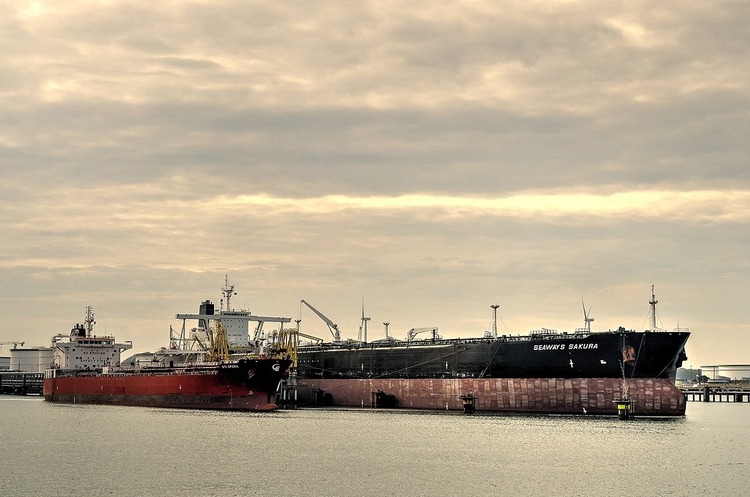Bloomberg: Russia's attempts to circumvent Western sanctions threaten environmental disaster
European waters are most at risk, as tankers with Russian oil are unloaded near European ports

Russia's attempts to circumvent Western oil sanctions threaten to cause an environmental disaster. This is the conclusion of experts and oil market participants interviewed by Bloomberg, as Russia is now using a record number of outdated tankers to transport its oil around the world. These vessels are often owned by little-known companies and do not have proper insurance. In the event of accidents, collisions or oil spills in the waters, this threatens local ecosystems with serious consequences.
"This is a catastrophe that will happen sooner or later," says Rolf Thor Roppestad, CEO of Gard AS. According to him, tankers with Russian oil regularly appear in Norwegian waters without proper insurance.
Moreover, experts agree that European waters are most at risk, as tankers with Russian oil are unloaded near the European ports of Greece and Spain.
Since the introduction of sanctions, Ceuta and the Greek bay of Laconis near the port city of Kalamata have become the most popular European destinations for Russian oil. It is here that fuel is pumped from small tankers to larger vessels almost daily, and then the latter go to buyers, mainly in China or India.
Catalina 7 had to go around Africa before it ended up in Chinese waters. It turned out that it took 93 days to deliver oil from Russia's Ust-Luga to Dongjiakou, one of the longest routes for Russian oil. For comparison, before the war, the average speed of delivery of Russian oil to the EU, its main consumer, was 8 days. Now, India has become the main consumer, and the average delivery time has increased almost fourfold to about 31 days.
In addition, it has become extremely difficult to obtain reliable data on supply volumes, buyers, and delivery routes. The only way to keep track is through satellite data, as well as data from oil traders who share information about new competitors.
Unknown companies from the UAE, Turkey, India, and Hong Kong replaced Vitol, Trafigura, and Glencore. Since the beginning of the war, 17 large companies have emerged that are actively engaged in the supply of Russian oil. Moreover, three of the six largest sellers of Russian oil are now located in the UAE, namely in Dubai, an emirate that has welcomed wealthy Russians and disgraced Russian businesses.
These companies use vessels from the so-called "shadow fleet." These are tankers whose ultimate owner is hidden behind many unknown companies registered in offshore jurisdictions. Moreover, the vessels of this fleet are usually very old, have not been properly maintained and pose real risks to the environment.
A striking example is the "Indian" company Gatik Ship Management (GSM), which in less than a year has grown from a small company with two vessels to a market leader with 58 vessels. The reasons for the growth are simple: the company was associated with Rosneft.
If you have read this article to the end, we hope that means it was useful for you.
We work to ensure that our journalistic and analytical work is of high quality, and we strive to perform it as competently as possible. This also requires financial independence. Support us for only UAH 196 per month.
Become a Mind subscriber for just USD 5 per month and support the development of independent business journalism!
You can unsubscribe at any time in your LIQPAY account or by sending us an email: [email protected]



